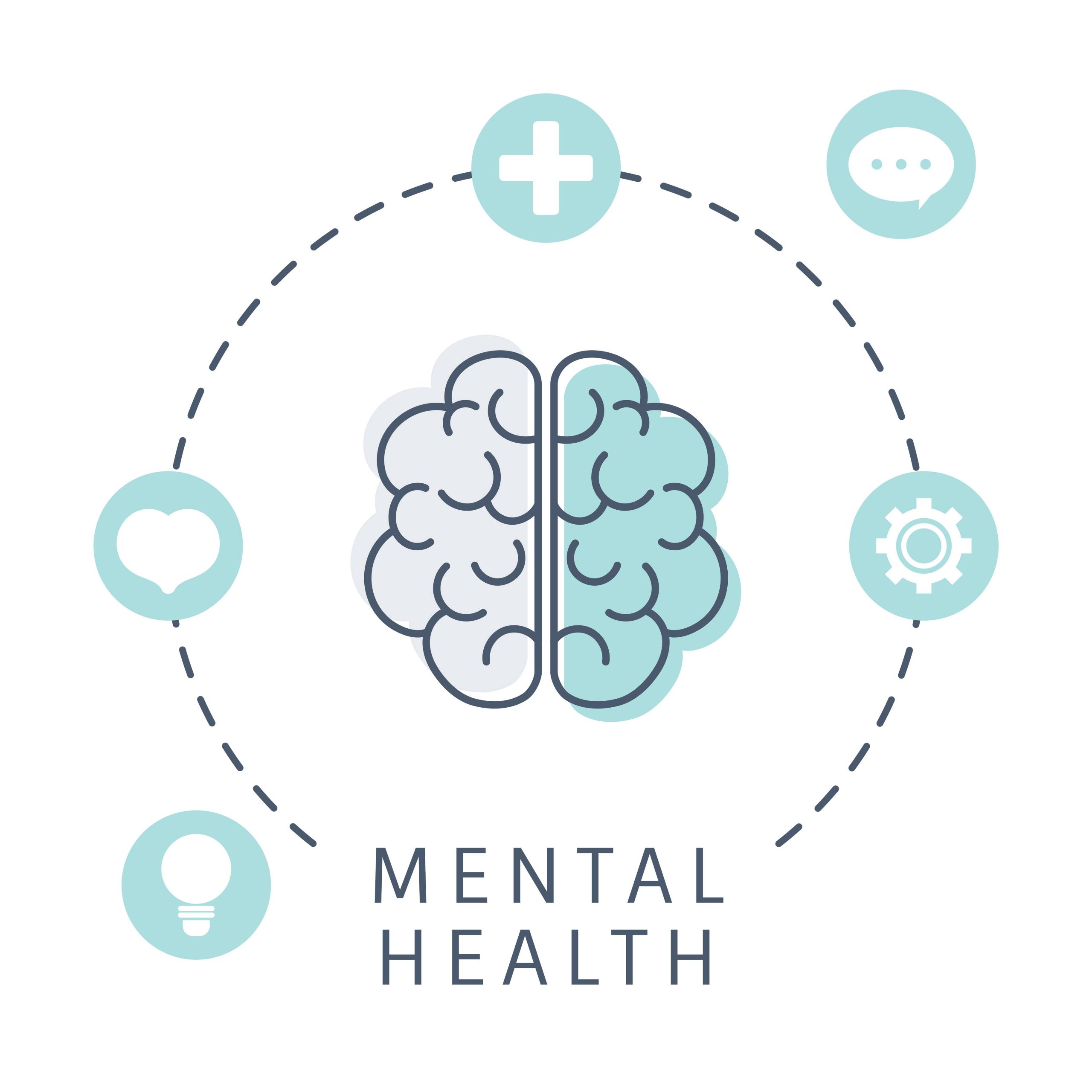Do you ever feel like your mind is a maze, and you can’t find your way out? Or like you’re stuck in a dark tunnel with no light at the end? It’s not uncommon to feel lost or overwhelmed, especially when it comes to mental health. But the good news is, there is hope and help available. By raising awareness and encouraging help-seeking, we can all take steps toward healing our minds and finding a brighter path forward.
Understanding the Stigma of Mental Health
The stigma surrounding mental health is a pervasive and damaging force that can prevent individuals from seeking the help they need. It often stems from a lack of understanding or misinformation about mental illness, leading to stereotypes, discrimination, and fear. People may feel ashamed or embarrassed to talk about their struggles or seek treatment, fearing judgment or rejection from others.
However, it’s important to recognize that mental health is just as important as physical health, and seeking help is a sign of strength, not weakness. By increasing our understanding of mental health and working to eliminate the stigma, we can create a world where everyone can feel comfortable seeking the help and support they need to thrive.
Also Read: Mental Health Issues Prevalent in India
Signs and Symptoms of Mental Health Disorders
Mental health disorders can present in many different ways, and it’s important to be aware of the signs and symptoms in order to seek appropriate help and support. Common signs and symptoms are as follows:
- Changes in mood or behavior:
- Difficulty sleeping or changes in sleep patterns:
- Loss of interest in activities that were once enjoyable:
- Changes in appetite or weight:
- Decreased energy or motivation:
- Difficulty concentrating or making decisions:
- Thoughts of self-harm or suicide:
- Physical symptoms such as headaches, stomach aches, or chronic pain:
- Social withdrawal or isolation:
- Substance abuse or increased reliance on drugs or alcohol:
Mental health disorders can cause significant changes in a person’s mood and behavior. These may include increased irritability, sadness, anxiety, or anger. Individuals may also experience sudden outbursts or mood swings that are out of character for them.
Insomnia or changes in sleep patterns, such as oversleeping or difficulty falling asleep, can be a sign of a mental health disorder. Disrupted sleep can also exacerbate symptoms of anxiety, depression, and other mental health conditions.
Losing interest in activities that were once enjoyable or no longer finding pleasure in hobbies or socializing can be a sign of depression or other mood disorders.
Mental health disorders can also cause changes in appetite, leading to overeating or undereating. This can result in significant weight gain or loss, and can also affect a person’s overall physical health.
Feeling tired, lethargic, or lacking motivation can be a sign of depression or other mood disorders. This can make it difficult for individuals to complete daily tasks or engage in activities they once enjoyed.
Mental health disorders can also affect cognitive function, leading to difficulty concentrating, memory loss, or trouble making decisions.
Thoughts of self-harm or suicide are serious warning signs that should never be ignored. Seek help immediately if you or somebody you know is experiencing these beliefs.
Mental health disorders can also manifest as physical symptoms such as headaches, stomach aches, or chronic pain.
Individuals with mental health disorders may withdraw from social situations or isolate themselves from others. This can lead to feelings of loneliness and exacerbate symptoms of depression or anxiety.
Individuals with mental health disorders may turn to drugs or alcohol as a way to cope with their symptoms.
Also Read: Young People and Mental Health: Tips To Enhance Well-Being
Seeking Help for Mental Health
Seeking help for mental health is an important step toward recovery and well-being. Ways to seek help:
- Talk to your doctor:
- Reach out to a mental health professional:
- Utilize online resources:
- Join a support group:
- Talk to a trusted friend or family member:
Your primary care physician can provide you with a referral to a mental health professional, such as a therapist or psychiatrist.
You can search for a therapist or psychiatrist in your area through online be directories or professional associations. Some may offer free or reduced-cost consultations.
Many mental health organizations offer online resources, such as hotlines or chat services, that can provide immediate support and assistance.
Support groups can provide a sense of community and help individuals connect with others who are going through similar experiences.
Sometimes just talking to someone can help. A trusted friend or family member can provide emotional support and may be able to help connect you with resources.
The Role of Friends and Family in Tackling Mental Health Disorders
Friends and family can play an important role in supporting individuals who are struggling with mental health disorders. Ways that friends and family can help:
- Offer emotional support:
- Help with daily tasks:
- Encourage treatment:
- Educate themselves:
- Practice self-care:
Simply being present and available to listen can provide much-needed emotional support.
Mental health disorders can make it difficult to complete daily tasks. Friends and family can help by offering to assist with things like cooking, cleaning, or running errands.
Encourage the individual to seek professional help and offer to help them find a therapist or psychiatrist.
Friends and family can learn about the specific mental health disorder and how it affects the individual.
It’s important for friends and family to take care of their own mental health as well.
Conclusion
Tackling mental health disorders can be a challenging journey, but it’s important to remember that help and support are available. At Medulance, we believe that mental health is just as important as physical health, and we strive to provide resources and support to those who are struggling. Remember, you are not alone, and there is no shame in seeking help. Take care of yourself and those around you, and together we can work towards a healthier and happier future.

